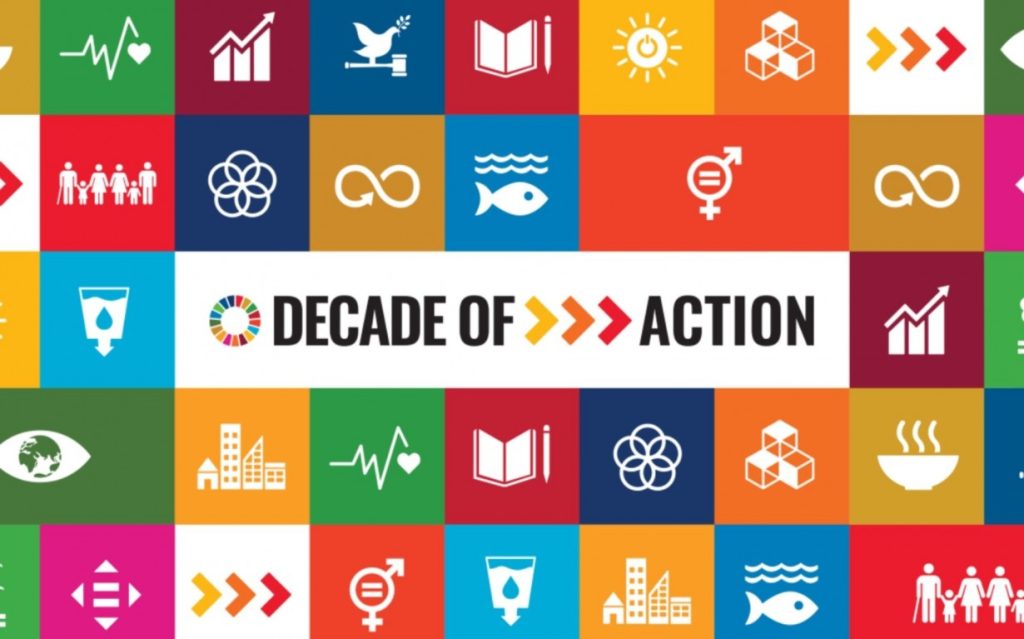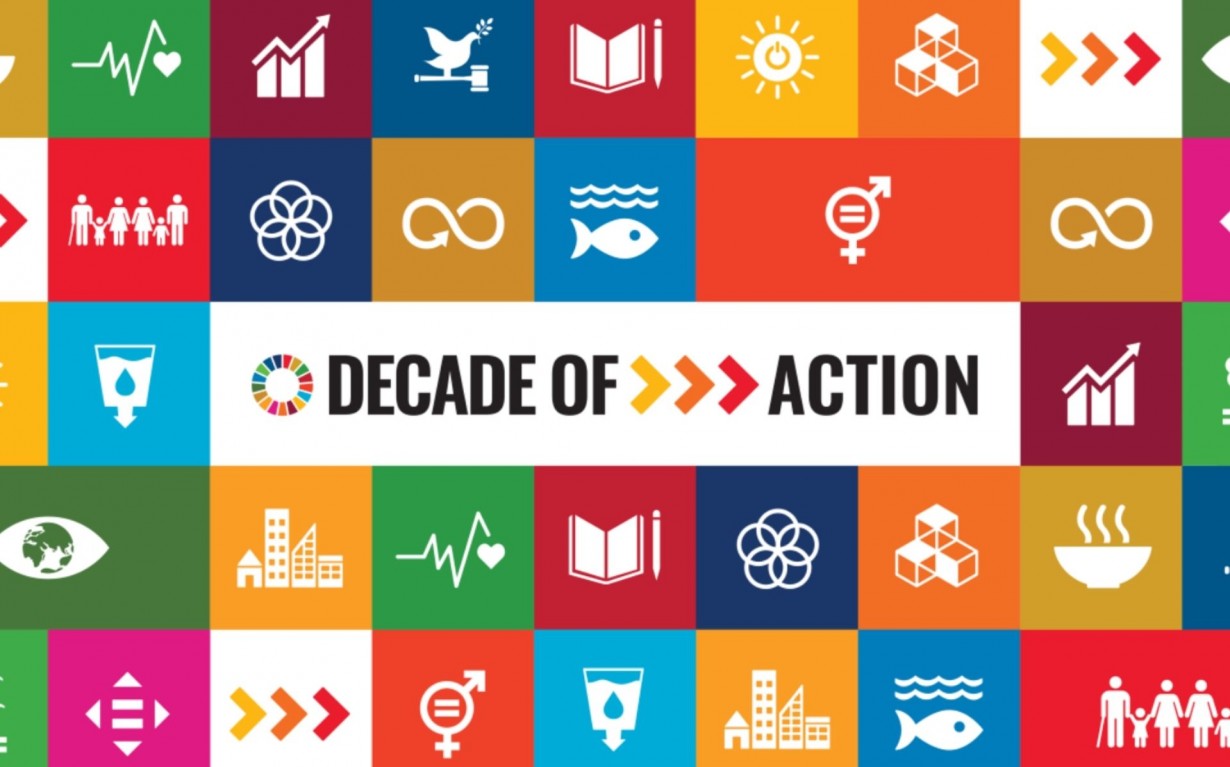
Sustainable Development Goals In The Pandemic; The Effect Of Covid-19 On Sustainability
The UN’s Sustainable Development Goals (SDGs), adopted in 2015, provide an international framework to move by 2030 toward more equitable, peaceful, resilient, and prosperous societies while living within sustainable planetary boundaries.
In collaboration with many international countries and organizations, the UN Sustainable Development Goals adopted by members in 2015 sought to achieve socio-economic prosperity through a focus on ending poverty along with other global challenges.
The 2030 Agenda for Sustainable Development produced a set of universal goals to address crucial political, environmental, and social challenges facing our world.
The Sustainable Development Goals – Action towards 2030 (CAFOD)
Although countries were not set to achieve the Sustainable Development Goals by 2030, their persistent efforts were further pushed back by the Covid 19 pandemic. The full extent of the pandemic affects every level within society and poses significant challenges to governments and states globally.
Sustainable Development Goal 1; Extreme Poverty
A GLOBAL PROBLEM-DRIVEN TO STAGGERING FIGURES BY THE COVID PANDEMIC
The COVID-19 pandemic is estimated to push an additional 88 million to 115 million people into extreme poverty this year, with the total rising to as many as 150 million by 2021, depending on the severity of the economic contraction.
Without significant intervention, patterns of extreme poverty can continue to plague our world today, forcing us to confront the effectiveness of our current system for sustainable development.
A study conducted by the United Nations Development Programme in collaboration with other organizations discovered that the Covid 19 pandemic could drive people living in extreme poverty to over 1 billion by 2030, an increase of three hundred million people from 2020!
But an intervention by governments with a focus on Sustainable Development Goals can assist in greatly reducing these drastic numbers.
Under a high damage scenario with little recovery, the number of people in poverty in 2050 is estimated to be 800 million, approximately 220 million more than the expected Covid Baseline.
With a plan in place to combat the rising numbers of poverty due to the pandemic, the total number of people in poverty could decrease significantly as evidently seen on the graph above.
This ambitious, yet feasible ‘SDG Push’ scenario would lift an additional 146 million people out of extreme poverty, narrow the gender poverty gap, and reduce the female poverty headcount by 74 million, even taking into account the current impacts of the COVID-19 pandemic
Hence, a plan with a focus on sustainable development can soften the drastic spike in poverty. Further supporting this statement, the study found that a plan with a “focused set of SDG investment” can not only alleviate poverty but indeed accelerate the path towards sustainability the world was in before the pandemic.
Sustainable Develeopment Goal 4; Learning Loss
SCHOOL CLOSURES AND DISTANCE LEARNING WORSEN STUDENT PERFORMANCE
During the start of the pandemic, schools all over the world closed to reduce the spread of Covid-19. Teachers and staff members shifted their teaching from in-person to online.
However, this sudden shift has disrupted the learning environment for millions of students, many of whom may not have the necessary resources, facilities and personalized training to continue furthering their education at home.
The pandemic has exacerbated well-documented opportunity gaps that put low-income students at a disadvantage relative to their better-off peers.
The Disruption of Global Education Systems (DW News)
The uneven access to technological devices and wifi have impeded student learning, leaving many underprivileged students across the globe behind in their academic studies, which may, in turn, delay their education and negatively affect their future.
A study in the Netherlands conducted by Stanford University and other partners revealed education losses of up to 60% for students from less educated backgrounds.
Even though the Netherlands contained a short lockdown period, sufficient funding, and world-leading broadband access, students on average loss a total of 3 percentile points of learning – equivalent to ⅕ of the school year which is also the total duration in which schools were closed.
Without a doubt, it can be said that the Covid-19 pandemic has drastically impeded student’s learning progress in schools and further increased disparities in society.
Interconnected to each other, underprivileged students of colour have experienced deepening disparities as a result of educational loss due to the Covid pandemic. With many underfunded schools holding a vast majority of students of colour, the Covid pandemic has further reduced the meagre resources originally available to these students.
However, not everything is grim. While the benefits of Covid-19 on education may seem scarce, there is still hope. Indeed, the pandemic has created a space for educators to rethink educational models for school including shifting educational focuses away from formal assessments, and increasing integration of curriculums that hold a focus on resilience, leadership, and critical thinking skills.
Sustainable Development Goal 8; Economic Recession
THE TANKING OF THE GLOBAL ECONOMY (EFFECTS ON WOMEN AND YOUTH)
The economic crisis caused by the COVID pandemic is expected to contribute to global unemployment of more than 200 million people next year, with women and youth workers worst-hit, UN labour experts said on Wednesday.
Understanding the Economic Shock of the Covid-19 Pandemic (Harvard Business Review)
With the increase of domestic responsibilities due to school closures, unemployed women face the threat of falling back into their traditional homemaking roles, which may reverse several decades of feminism.
Additionally, as many job windows close, many surveys show that the number of women being ‘let go’ is significantly higher than men, ranging from anywhere between 55% to 83%.
On the other hand, women are not the only group predominantly affected by the pandemic. Making up a high proportion of the workforce, youth workers also faced massive layoffs, as well as cut wages due to the pandemic. In a study by the UN labour agency, it was reported that more than one in six young people has stopped working since the pandemic.
Due to the pandemic’s lasting consequences on the economy, urgent action is needed to reduce the lasting scars it produces on the economy. To achieve the Sustainable Development Goals comes the first action: slow the growth of Covid infections to recover from the global economic recession.
Global Recovery From The Corona Virus Pandemic
To enable a robust global recovery from the pandemic, international cooperation and coordination is needed.
Noticing the necessity of recovery, Earth5R, a global environmental organization, sought to address the growing pandemic through their Covid Relief Program. Consisting of technologically driven isolation rooms, the Covid Relief Program created well-ventilated isolation rooms that, at the same time, prevented medical staff from being infected by patients.
Simultaneously, Earth5R further spread its environmental message while also boosting economic recovery in the community through their Home Equals Planet Project.
Ranking among the 300 World Best Practices on Sustainability and Innovation, the Home Equals Planet Project consisted of 15 tangible actions taken by individuals at a local and individual level. Aligning with the 17 UN Sustainable Development Goals, these actions promoted simple but effective steps for adopting a sustainable lifestyle.
Earth5R volunteer conducts the Sustainable Community Program (Home Equals Planet Project) at Kurla, Mumbai in India (Earth5R)
By adopting measures with a focus on achieving the sustainable development goals – particularly addressing the increase in poverty, the loss of education, and the economic recession – the government, with the collective effort of the citizens and other organizations, can alleviate the consequences of the corona crisis, placing our world back on a sustainable track.
ABOUT EARTH5R
Earth5R is an environmental organization from India with its head office in Mumbai. It works with the NGO sector, Companies and helps them conduct environmental Corporate Social Responsibility (CSR) programs across India.
Earth5R specializes in circular economy-based projects. Earth5R also offers short-term and long-term environmental courses and fellowships.
–Reported by Claire Hsu, Edited by Tamanna Dharamsey



